Introduction
Digital nomads can officially live in another country using specific visa programs that allow not just travel, but also the ability to work and conduct professional activities remotely. These visas are available for freelancers, entrepreneurs, and professionals whose income comes from foreign sources. Today, over 40 countries offer a Digital Nomad Visa with various conditions—from length of stay to tax benefits. We’ve selected the 10 best programs and analyzed their requirements and costs in detail. Where and under what conditions you can legally live and work—let’s break it all down.
Defining the Digital Nomad Status
In recent years, more countries have begun offering special visas for remote workers. These visas allow individuals not only to travel but also to officially work and reside abroad. Digital nomads are people who are not tied to a specific location and earn their income remotely. This group includes freelancers, employees of international companies, entrepreneurs, or startup owners. They typically work in IT, design, marketing, consulting, education, and other professions where all that’s needed is a stable internet connection and a laptop.
To stay in a country longer than a tourist visa allows, digital nomads apply for a long-term visa, which often serves as a basis for obtaining temporary residency. The main conditions usually include proof of foreign income and a rental agreement. More than 40 countries offer such programs. While the conditions vary, they are generally targeted at professionals leading a mobile lifestyle and capable of supporting themselves abroad. If you’re looking to combine freedom of movement with legal residence in another country, a Digital Nomad Visa is a convenient and accessible option.
Key Benefits of a Freelancer Visa
The Digital Nomad program opens wide opportunities for remote workers and freelancers to live and work legally abroad. It’s a convenient and cost-effective way to live overseas without making large investments in real estate or local economies. Let’s explore the main advantages of this type of visa:
- Simplified relocation. To apply, you typically need to prove financial solvency and show a rental agreement, making the process more accessible and affordable. In some countries, the minimum required income is as low as €3,480 per month.
- Family relocation opportunities. Most programs allow digital nomads to bring their spouses and children, although income requirements may increase depending on family size.
- Access to education and healthcare. Families of digital nomads can take advantage of the host country’s social systems, including public education for children and healthcare services.
- Tax optimization. Many countries offer tax incentives for remote workers. For example, Spain has a program where eligible individuals can pay income tax at a reduced rate of 24% instead of the standard 45%, which can result in significant savings for high-earning professionals.
- Pathway to citizenship. In some countries, such as Greece, digital nomads may be eligible to apply for citizenship after 5–10 years of residence.
Despite the advantages, these visas also come with some limitations—such as restrictions on working for local companies and the requirement to live in the issuing country for most of the year. Nevertheless, the Digital Nomad Visa remains an attractive option for those who want to combine work and travel while enjoying a high quality of life.
Digital Nomad Visa in Spain
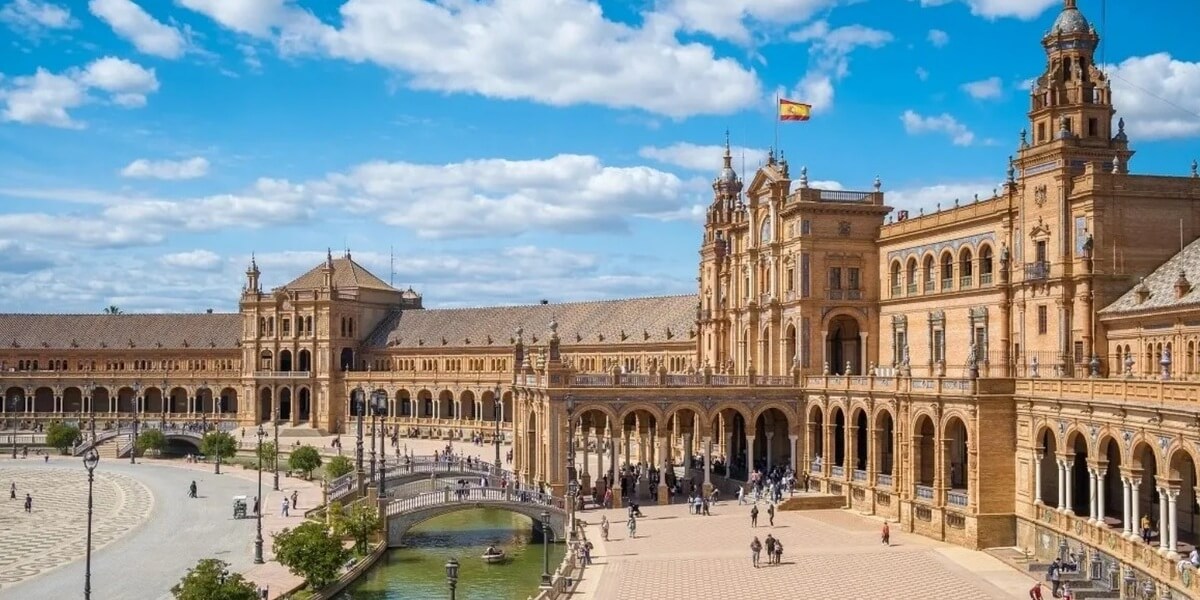
Spain attracts remote workers thanks to its warm climate, high quality of life, and business-friendly environment. Since launching its Digital Nomad Visa, the country has become a popular destination for those seeking to work remotely abroad. Spain offers tax incentives, high-speed internet, and robust infrastructure. Additionally, its location allows for easy travel within the Schengen Area without additional visas.
Advantages
Spain consistently ranks high globally for quality of life and is a top choice for digital nomads. Key benefits include:
- A warm climate and stunning natural landscapes.
- Well-developed infrastructure and access to quality healthcare.
- Freedom to travel within the Schengen Area without extra visas.
- Tax incentives for self-employed individuals and entrepreneurs, making it financially appealing for remote work.
Requirements
To qualify for Spain’s Digital Nomad Visa, applicants must:
- Be self-employed, a freelancer, or employed by a foreign company.
- Have a monthly income of at least €2,763 (or €33,150 annually) from foreign sources.
- If applying with family, income requirements increase: €1,035 more for a spouse and €345 for each additional family member.
The visa is initially valid for 3 years and can be extended for another 2 years. A key condition is residing in Spain for at least 6 months each year.
Who Can Be Included in the Application
Applicants may include:
- a spouse or registered domestic partner;
- children;
- parents or grandparents.
These family members are allowed to work in Spain if they are financially dependent on the main applicant (excluding spouses and partners).
Application Costs
- Visa application fee: €80.
- Health insurance: €100–€200 per month depending on coverage.
- Additional fees: €79.26 for the residence card and €9.84 for a tax ID number (NIE).
Required Documents
- passport and color photographs;
- police clearance certificate covering the past 5 years;
- proof of income (bank statements, contracts, etc.);
- proof of relationship for family members included in the application;
- rental agreement or property ownership documents in Spain;
- health insurance policy.
Application Process
- Prepare the necessary documents and submit your application at a Spanish consulate or visa center in your country of residence.
- Wait for approval (usually takes up to 3 months).
- Upon arrival in Spain, register with immigration authorities and obtain a local ID number (NIE).
The visa is valid for 3 years and can be extended if you continue to meet the income and residency requirements. Spain offers excellent conditions for digital nomads, including access to modern technology, tax incentives, and an appealing climate. If you’re looking to work remotely from one of Europe’s most stable and attractive countries, Spain’s Digital Nomad Visa may be the perfect option for you and your family.
Digital Nomad Visa in Portugal
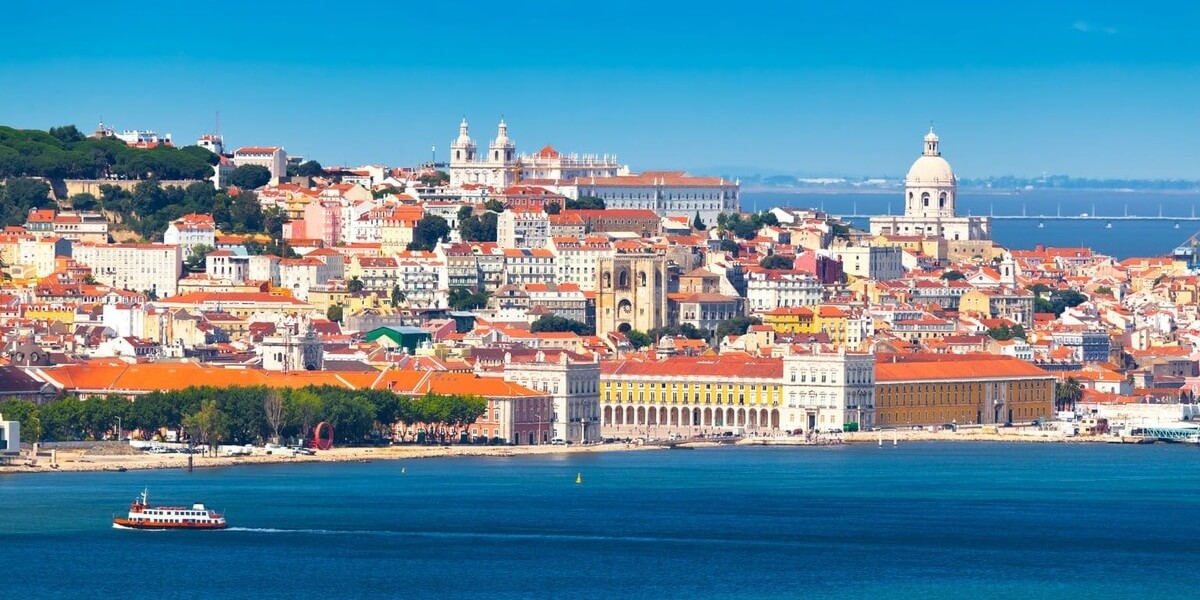
Portugal is one of the most popular choices for digital nomads, offering comfortable living conditions and a favorable environment for remote work. The country attracts nomads with its mild climate, modern infrastructure, and unrestricted travel within the Schengen Area. Thanks to its flexible visa rules and relatively low cost of living, Portugal is an optimal destination for those looking to combine professional activity with exploration.
Advantages
Portugal offers digital nomads a high quality of life:
- Average annual temperatures range from +17°C to +33°C in summer, and rarely fall below +6°C in winter.
- 398 beaches have been awarded Blue Flag certification for cleanliness and safety (as of 2024).
- Affordable cost of living: around €1,550 per month for an individual and €4,000 for a family of four.
- Visa-free travel throughout the Schengen Area.
Visa Types
Portugal offers two types of visas for digital nomads:
- Short-term visa – allows a stay of up to one year. It cannot be extended and does not lead to residency.
- Long-term visa – valid for two years and provides a path to residency.
Main Requirements
The primary requirement is proof of foreign income of at least €3,480 per month. If you’re applying with family, the required savings increase:
- by 50% for a spouse;
- by 30% for each child.
Who Can Be Included in the Application
- a legal spouse or partner;
- minor children;
- unmarried children under 30 who are financially dependent;
- financially dependent parents.
Application Costs
Applicants for a long-term visa pay a fee of 90 €, for a short-term visa – 75 €. You will also need to take out health insurance, the cost of which varies from 20 to 100 € per month depending on the package. Additional costs include renting accommodation.
Required Documents
- Valid passport.
- Birth certificate.
- Passport photos.
- Marriage certificate (if applicable).
- Tickets to Portugal.
- Motivation letter.
- Bank statements.
- Criminal record certificate.
- Rental or property ownership documents.
- Health insurance.
- Portuguese taxpayer number (NIF).
Application Process
The visa application takes up to two months. After receiving a long-term visa, you must apply for a residence permit in Portugal. This involves registering with the Agency for Integration, Migration and Asylum (AIMA). Obtaining a residence permit can take up to 6 months. Portugal’s Digital Nomad Visa offers great opportunities for remote work and travel, combining favorable living conditions with a relatively straightforward visa process.
Digital Nomad Visa in Greece

Greece attracts digital nomads not only with its warm climate but also with favorable conditions for remote work. With the Digital Nomad Visa, professionals can live and work in the country for an extended period while enjoying its history, culture, and nature.
Advantages
Greece offers comfortable living and working conditions. Key benefits include:
- Mild climate: winter temperatures don’t drop below +14°C.
- Long summer: beach season lasts from April to October.
- Scenic islands and renowned Greek cuisine.
- Rich history and cultural heritage.
- Low cost of living: around €800 per month for a single person and €2,800 for a family of four.
Requirements
To obtain the Digital Nomad Visa, you must work remotely for a company or several companies registered outside of Greece. The applicant’s minimum income must be €3,500 per month after taxes. The visa grants temporary residency (residence permit) for one year with the possibility of a two-year extension. If family members are included in the application, the income requirements increase by 20% for a spouse and by 15% for each child. Additional applicants are not allowed to work or conduct business in Greece.
Who can be included
In addition to the main applicant, the following can be included:
- spouse or registered domestic partner;
- minor children (under 18 years).
Application Costs
- administrative fee: €75 per person;
- health insurance: from €80 per year per family member;
- housing rental: from €350 for a one-bedroom apartment and from €655 for a three-bedroom.
Required Documents
- Valid passport.
- Cover letter with a commitment to remote work.
- Proof of employment (e.g., work contract with a foreign company).
- Proof of income (bank statements).
- Rental agreement or property ownership certificate.
- Health insurance.
- Criminal record certificate.
Application Process
The application is submitted at a Greek consulate or embassy in your country of citizenship or residence. The visa is processed within 10 business days. If the applicant is already in Greece, documents can be submitted to the Ministry of Migration and Asylum. The Digital Nomad Visa in Greece offers a unique opportunity for remote workers who wish to combine productive work with life in a picturesque country. Greece not only offers favorable work conditions but also a rich culture, great climate, and welcoming atmosphere.
Digital Nomad Visa in Hungary
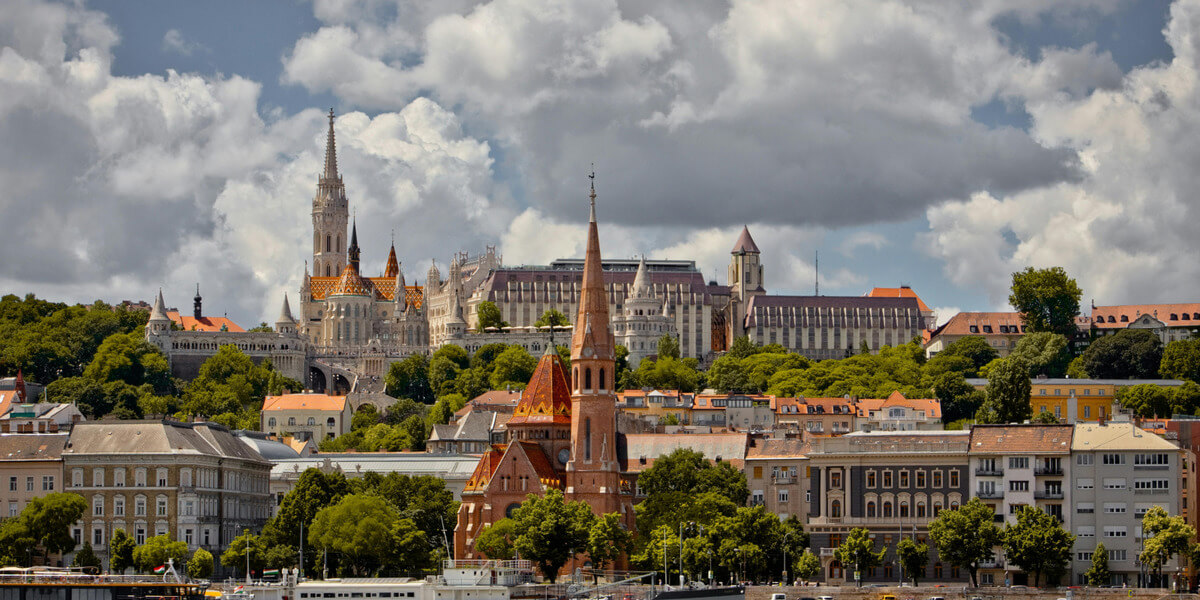
Hungary attracts digital nomads with its affordable cost of living and convenient central European location. With the digital nomad visa, known as the White Card, one can live and work in Hungary while enjoying the freedom to travel throughout the Schengen Area. Let’s take a closer look at what this visa offers and its requirements.
Advantages
With the White Card, you can enter Hungary and other Schengen countries without needing a separate visa, allowing stays of up to 90 days in each half-year period. Hungary is also an ideal base for travel around Central Europe due to its location and excellent transportation network. The approximate cost of living in Hungary is about €690 per month, making it more affordable than many other EU countries.
Requirements
To be eligible for Hungary’s digital nomad visa, you must prove a monthly income of at least €3,000 for the past six months. The visa is valid for one year and grants temporary residency status. It’s important to note that the White Card holder must spend at least three months out of every 180 days in Hungary. Family members cannot be included in the application.
Costs
There are some financial requirements for the visa process. The administrative fee for submitting the application is €110, and the renewal for the second year costs €60. You also need to rent accommodation in Hungary. Rent for a one-bedroom apartment ranges from €360 to €600 per month depending on the region.
Required Documents
To apply for a digital nomad visa in Hungary, you need to submit the following documents:
- Valid passport.
- Completed visa application form.
- Health insurance with coverage of at least €30,000.
- Rental or property agreement in Hungary.
- Proof of income of €3,000/month for the past six months.
- Remote work authorization from your employer.
Application Procedure
The White Card application includes the following steps:
- Prepare all required documents and submit the visa application.
- Obtain a type D visa from the Hungarian consulate or upon arrival if entering with a tourist visa.
- Upon arrival, submit a residence permit application to the National Directorate-General for Aliens Policing and collect your card.
Visa processing takes approximately 4 months. Hungary provides digital nomads with attractive conditions for work and life. With the ability to freely travel across the Schengen Area and enjoy a low cost of living, it’s a great option for those seeking flexibility and stability.
Digital Nomad Visa in Estonia
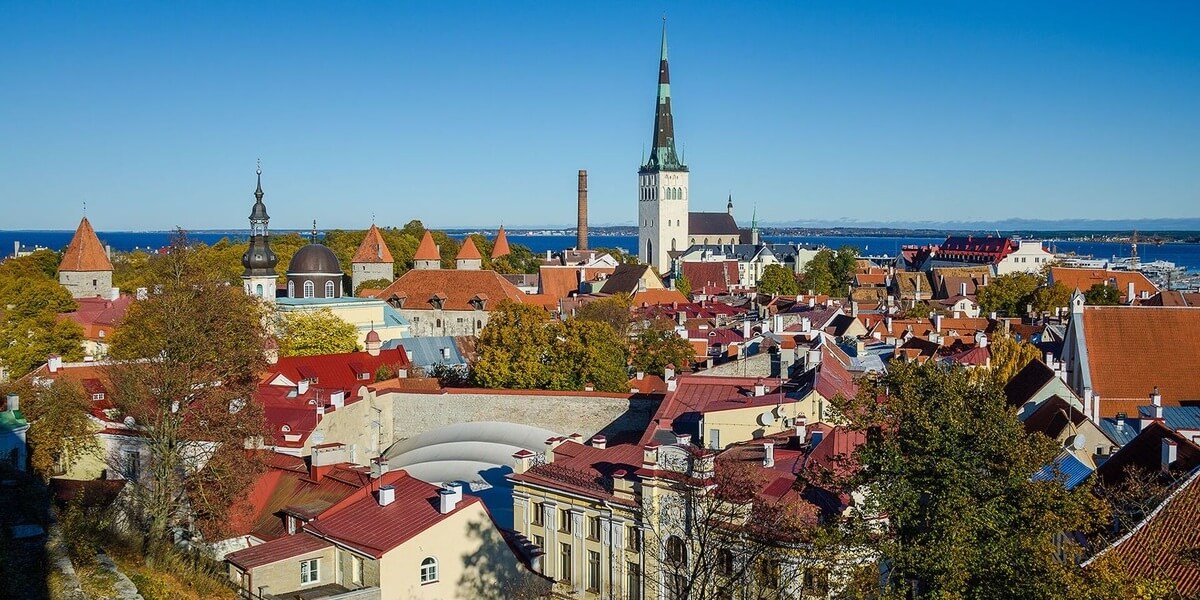
Since August 2020, Estonia has been accepting applications for a digital nomad visa. This visa offers unique opportunities for those who want to work remotely while enjoying the culture and digital infrastructure of one of Europe’s most tech-savvy countries.
Key Benefits of Estonia’s Digital Nomad Visa:
- stay in Estonia for up to 1 year;
- fast application processing;
- ability to travel within the Schengen Area;
- living and working in Estonia with access to high-speed internet;
- option to relocate with your family.
Eligibility Requirements
To be eligible for Estonia’s digital nomad visa, the applicant must:
- be over 18 years old;
- work as a freelancer or remote employee.
You must also prove a sufficient income level, with minimum requirements set at €150 per day per person.
Who Can Be Included in the Application
You can include family members in the application, including a spouse and children.
Visa Fees
- type C visa (short-term, up to 90 days): €80;
- type D visa (long-term, up to 1 year): €100.
Required Documents
- Passport.
- Completed application form.
- Job offer letter or employment contract.
- Bank statement.
- Proof of accommodation.
- Certificate of no criminal record.
- Health insurance with €30,000 coverage.
- Educational certificates (if required).
Steps for Application
- Check your eligibility.
- Gather the necessary documents.
- Submit the visa application.
- Send the documents to the Estonian consulate.
- Wait for a decision and prepare for relocation.
Visa processing in Estonia takes between 15 and 30 days. This visa is ideal for remote workers who want to enjoy life in Europe while continuing their careers.
With widespread free internet and the ability to travel across Europe, Estonia is an appealing choice for digital nomads.
Digital Nomad Visa in the UAE

The United Arab Emirates offers unique conditions for digital nomads, attracting foreign professionals with a high standard of living, favorable tax policies, and a growing real estate market. This visa allows remote work in one of the most developed countries in the region, while providing access to a wide range of amenities and business opportunities.
Visa Benefits
The UAE attracts specialists from around the world thanks to numerous advantages:
- Tax benefits: there is no personal income tax in the UAE.
- Possibility to open a bank account and use government services after obtaining a local Emirates ID.
- The country has signed double taxation agreements with more than 100 countries.
- Living in a country known for its high-quality healthcare and education systems, as well as a growing real estate market.
Eligibility Requirements
To obtain a digital nomad visa in the UAE, applicants must meet several key criteria:
- Applications can be submitted by business owners or employees working for foreign companies.
- The applicant must prove a monthly income of at least $3,500 USD.
- The visa is valid for one year but can be renewed indefinitely, provided the applicant does not stay outside the country for more than six consecutive months.
- Family members, including spouses and children, can be sponsored under the program.
Costs
The visa application process includes several fees:
- Administrative fee: $287 USD per person.
- Medical insurance is required, costing approximately $1,600 USD per year on average.
Required Documents
To apply for the visa, the following documents are needed:
- Passport valid for at least six months.
- Medical insurance valid in the UAE.
- Employment contract confirming a monthly income of at least $3,500 USD and valid for at least one year (for employees).
- Proof of business ownership (for business owners).
- Payslip for the most recent month.
- Bank statements for the last three months (corporate account for business owners).
Application Process
Applications are submitted via the official Dubai Remote Work program website – Visit Dubai. After submission, a visa decision is typically made within 1–2 months. This visa offers a unique opportunity for remote workers to not only live and work in the UAE but also enjoy a high standard of living and a modern business environment.
Digital Nomad Visa in Malta
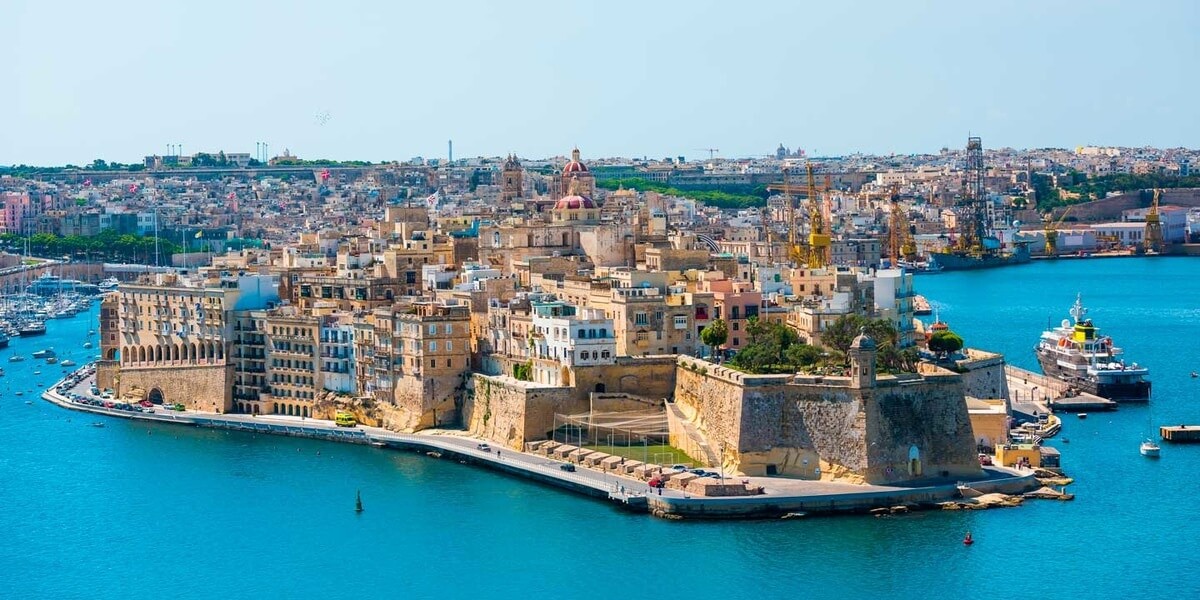
Malta offers a unique opportunity for digital nomads who want to combine work with comfortable living by the sea.
Benefits
Malta attracts foreigners with its warm climate and Mediterranean location, creating ideal conditions for work and leisure. English is an official language, making communication and social integration easy. The country also boasts advanced infrastructure and tax benefits for foreign professionals, making it an attractive destination for remote work.
Requirements
To obtain a digital nomad visa in Malta, applicants must meet the following criteria:
- Work as a freelancer, employee of a foreign company, or startup founder.
- Have a pre-tax income of at least €3,500 per month.
Applications may include family members:
- Spouse or partner in a civil union.
- Minor children.
- Children over 18 who are unmarried and financially dependent on the main applicant.
The digital nomad status is granted for one year and can be extended for up to four years, provided the applicant spends at least five months per year in Malta. The Nomad Residence Permit offers a great opportunity for those seeking to live and work in Malta long term.
Costs
Visa costs per applicant:
- application fee: €300;
- residence permit card: €27.50;
- medical insurance with minimum coverage of €30,000: from €400 per month.
Required Documents
To apply for the Malta digital nomad visa, the following documents are required:
- Valid passport.
- Motivation letter.
- Health insurance with coverage of €30,000.
- Proof of employment (employment contract or service agreement with a foreign company).
- Bank statements for the last 3 months.
- Marriage certificate and birth certificates of children (if applicable).
- One-year rental agreement or property purchase agreement.
Application Process
The visa process takes 2 to 4 months. After submitting the application and paying the administrative fees, applicants receive preliminary approval. They must then provide proof of insurance and housing. An entry visa is issued after final approval, and biometric data must be submitted upon arrival in Malta. Malta provides excellent conditions for digital nomads, ensuring stability and convenience. The Nomad Visa program helps attract global talent by offering flexibility, comfort, and the option to extend residency up to four years.
Digital Nomad Visa in Italy

Italy is one of the most popular countries for freelancers, thanks to its high quality of life, safety, mild climate, and rich culture.
Benefits
Among the advantages of Italy’s digital nomad visa is the opportunity to legally live and work in one of the world’s most beautiful countries, with full access to the privileges of the Schengen area. It’s the perfect choice for those wanting to combine work with travel across Europe.
Requirements
Applicants must be non-EU citizens. They should be freelancers, entrepreneurs, or employees of a foreign company. The minimum income requirement is €2,700 per month, along with proof of savings of at least €30,000. If family members are included, the savings requirement increases by €5,000 per adult and €3,000 per child.
Applicants may include:
- spouse;
- children under 18;
- financially dependent parents.
Costs
The consular visa fee is €30, and the residence permit issuance fee is €112. Additional costs may include notary services, translation, and mandatory health insurance (at least €350).
Required Documents
To apply for the Italy digital nomad visa, the following documents are needed:
- valid passport;
- visa application form;
- police clearance certificate;
- bank statements;
- proof of remote work (e.g., employment contract);
- health insurance;
- proof of address in Italy (rental agreement or property ownership);
- proof of family relationships (marriage and birth certificates) for dependents.
Application Process
The visa process takes up to three months. After arriving in Italy, applicants must apply for a residence permit at the local police station within eight days and provide biometric data. The visa is issued for up to one year and can be renewed for an additional two years.
Italy’s digital nomad visa not only provides a legal work status but also allows individuals to enjoy a rich cultural lifestyle and the benefits of living in Europe.
Digital Nomad Visa in Cyprus
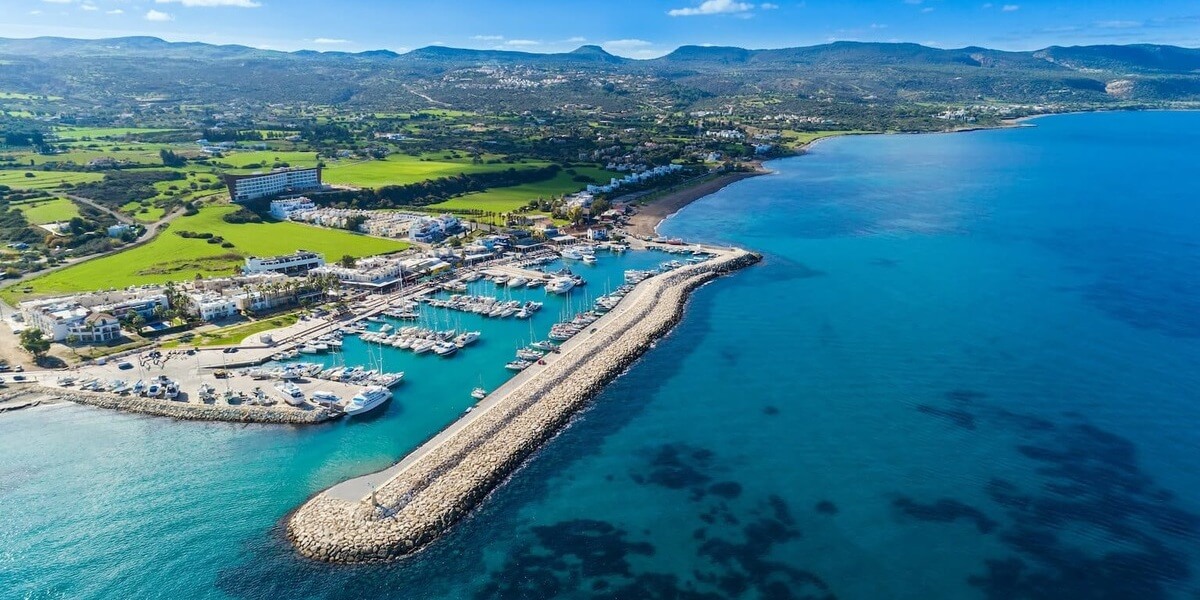
More and more people are choosing Cyprus for long-term living and work each year. The Digital Nomad Visa in Cyprus was introduced in 2021 and offers unique benefits for foreign professionals working remotely.
Benefits
Cyprus is known for its warm climate, with over 300 sunny days a year and a long beach season from May to October. A mild winter with temperatures ranging from +5 to 15 °C is also a significant advantage. English is widely spoken, which makes adaptation easier.
Conditions
To obtain a Digital Nomad Visa in Cyprus, you must confirm an income of at least €3,500 per month after taxes and contributions. Applicants can be people working remotely for foreign companies or self-employed. It is important that the applicant is not a citizen of any EU or EEA country. The visa is issued for one year, with the possibility of extension for two more years. Family members (spouse, children under 18) can apply together with the main applicant. Their residency status will be the same as that of the main applicant. However, family members are not allowed to work or conduct business in the country.
Costs
Applicants must pay a registration fee of €140 for the issuance of a resident card and registration in the foreigners’ register.
Documents
To apply for the Digital Nomad Visa, you will need the following documents:
- Passport.
- Criminal record certificate.
- Employment contract with a company registered outside Cyprus.
- Bank statement for the last 6 months or salary certificate showing an income of at least €3,500 per month.
- Lease agreement or proof of property ownership.
- Health insurance.
- Test results for Hepatitis B and C, HIV, Syphilis, and a chest X-ray.
- Employment letter confirming remote work.
Application Process
After entering Cyprus, applicants must submit their visa application within three months. Applications are submitted in person at the Civil Registry and Migration Department in Nicosia. The visa processing time takes up to 2 months. Cyprus continues to attract digital nomads due to its favorable climate, high quality of life, and affordable conditions for remote work. The Digital Nomad Visa in Cyprus is a great opportunity for professionals looking to live and work on one of the most attractive islands in the Mediterranean.
Digital Nomad Visa in Turkey

Turkey is a country that offers digital nomads not only picturesque views but also a variety of climates.
Benefits
- Long beach season: On the Mediterranean coast, it lasts from May to October.
- Comfortable climate: In summer, temperatures reach +27…32°C, while in winter, they drop to +15°C.
- Variety of weather conditions: In the northern part of the country, the climate is more variable, with summer temperatures rising above +30°C and winter temperatures sometimes falling below 0°C.
- Low cost of living: The average monthly expenses for one person are around $540, excluding rent.
- Economic benefits compared to the EU: Living in Turkey is cheaper than in EU countries like Cyprus or Spain.
Conditions for obtaining the visa
Turkey offers a digital nomad visa for applicants aged between 21 and 55. To get the visa, applicants must confirm an income of at least $3,000 per month or $36,000 per year. They must provide an employment contract or a service agreement with companies outside Turkey, as well as a university degree. All documents must be submitted in Turkish or with an official translation.
Who can be included
Not only the main applicant but also their family members can apply. However, to obtain visas for family members, additional requirements must be met, including proof of housing and income.
Visa Costs
To obtain the Digital Nomad Visa in Turkey, you need to pay state fees, which include the certificate fee and consular fees. The total cost can vary depending on the specific situation and the method of application.
Documents needed to obtain the visa
- Passport valid for at least six months from the date of arrival in Turkey.
- University degree.
- Employment contract or service agreement with companies outside Turkey.
- Biometric photo.
- Bank statement or employer letter confirming income.
Visa Application Process
To obtain the visa, you need to get the Digital Nomad certificate from Turkey’s official website and then submit an application to the Turkish consulate or visa center. It is also possible to apply online if the applicant is already in Turkey. The visa application process can take several weeks. Turkey provides attractive conditions for digital nomads thanks to its favorable climate, low living costs, and the simplicity of the visa application process. This makes it an excellent choice for those who want to work remotely and enjoy life in a sunny and affordable country.
Key Takeaways about the Digital Nomad Visa
When choosing a country for a Digital Nomad Visa, it’s important to consider your personal preferences and needs. For example, if you value a warm climate and low living costs, Cyprus and Turkey may be excellent options. Cyprus attracts with its mild climate and affordable remote working conditions, while Turkey stands out for its lower cost of living and variety of climate conditions.
If you are looking for stability and developed infrastructure, Malta and Portugal might offer higher income, but also higher expenses. It’s important to note that each country has its own requirements for income and documents, so your choice should depend on your financial situation and personal preferences. Ultimately, the ideal country is the one that aligns with your life and work priorities.








